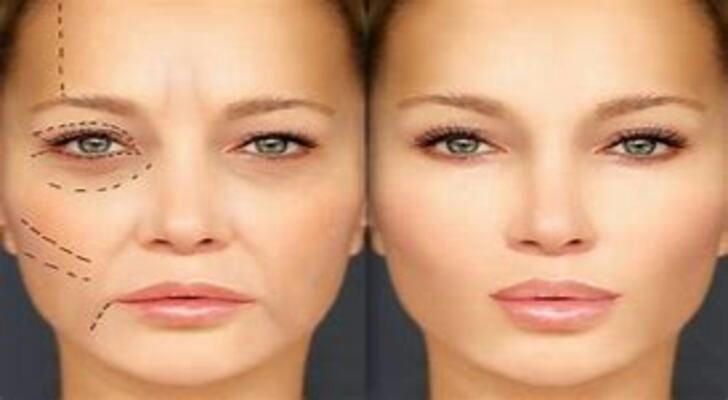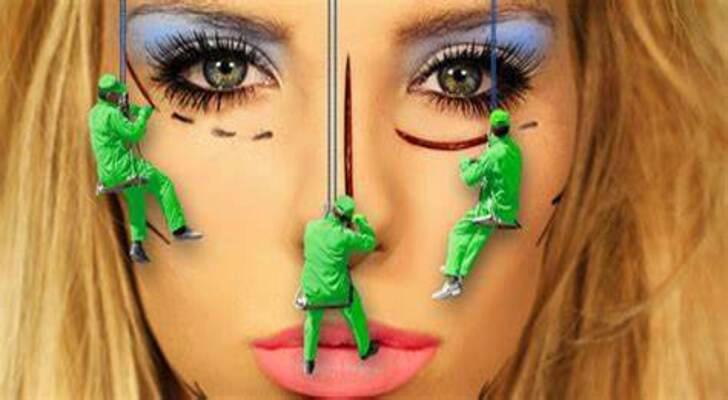Women and Plastic Surgery: Breaking Stereotypes and Misconceptions

In recent years, the conversation surrounding women and plastic surgery has transformed dramatically. Once considered a taboo subject, it has sparked widespread discussion about empowerment, beauty standards, and self-image. While many view plastic surgery as a path to empowerment, others perceive it as a manifestation of insecurity. This article delves into societal perceptions of women's plastic surgery, the challenges women face on their journey to body confidence, and actionable strategies for fostering a more supportive environment.
1: Society's View on Women's Plastic Surgery.
Plastic surgery, especially in the context of women, often elicits a range of reactions. On one side, there is a notable trend toward greater acceptance of cosmetic procedures. Many people regard these surgeries as personal choices that can enhance one's appearance and significantly boost self-esteem and body image. According to the American Society of Plastic Surgeons (ASPS), approximately 18 million surgical and minimally invasive cosmetic procedures were performed in the United States in 2019, with women accounting for around 92% of those undergoing these procedures. This statistic signifies a shift toward women taking charge of their physical appearances, which aligns with broader social movements emphasizing personal choice and autonomy.
However, societal perceptions can often veer into judgmental territory. Many individuals still associate plastic surgery with vanity or self-indulgence, suggesting that those who opt for such procedures lack self-acceptance. This stigma can create immense pressure for women considering surgery, often leading them to feel the need to defend their choices. Such societal judgment can lead to internal conflict; women find themselves torn between the desire for aesthetic changes and fear of criticism or condemnation from others.

2: Surgery Acceptance.
The Pursuit of Body Confidence
For numerous women, the journey toward body confidence is ongoing. In this context, plastic surgery can play a substantial role in how women navigate their self-image and confidence. The relentless pressure to conform to narrow societal beauty standards is staggering, with women bombarded daily by idealized images—whether from social media influencers, fashion magazines, or celebrity culture.
A 2018 study by the Dove Self-Esteem Project revealed that an astonishing 80% of women feel that the beauty standards propagated by society are unrealistic and unattainable. Given this backdrop, plastic surgery can serve as a practical solution for many, enabling women to align their physical appearances with their perceptions of beauty.
Women often consider various procedures—such as breast augmentation, liposuction, or facial enhancements—as tools to achieve their desired self-image. For many, these decisions lead to increased self-esteem and enhanced mental well-being. Research suggests that a significant percentage of women report an improved body image following plastic surgery, reinforcing its role in fostering confidence.
The Challenges of Upholding Individual Choices
Despite the supportive narratives around body confidence and empowerment through plastic surgery, challenges abound. Women often face significant societal pressure to conform to traditional norms of beauty, making their choices seem like a desperate attempt to fit in rather than a decision rooted in self-love.
Judgment and Criticism
Even when a woman feels confident in her decision to undergo surgery, there’s always a risk of facing backlash. Friends, family, and even strangers may criticize the choice, arguing that it reflects a lack of self-acceptance. This societal judgment can lead to cognitive dissonance, where women feel they need to defend their choices rather than celebrate them.
Marketing and Misinformation
The plastic surgery industry is rife with marketing that often emphasizes appearances over self-worth. Many advertisements portray plastic surgery as a magical solution to deep-seated issues of self-esteem, which can lead women to believe that their worth is directly linked to their physical appearance. This creates a cycle of demand where women feel compelled to undergo procedures to attain approval, further complicating their relationship with body image.
Financial Considerations
Financial barriers also present a significant challenge for many women wanting surgical enhancements. According to a survey by the ASPS, the average cost of cosmetic procedures, such as breast augmentation, can exceed $3,500. Such a financial burden can induce stress for those striving for body confidence through surgery, leading to doubts about whether the expenditure is justified.

3: Financial Considerations
Moving Towards Acceptance
To foster a more supportive environment for women's plastic surgery choices, society must work to dismantle the stereotypes and misconceptions surrounding this topic. Here are specific strategies, along with actionable steps, that can promote understanding and acceptance:
Encourage Open Conversations
Action Step: Create community forums or online platforms where individuals can share their personal stories related to plastic surgery. These discussions can demystify the motivations behind such choices and help normalize the conversation around body image. Organizing local workshops or panels featuring plastic surgeons, therapists, and women with varying experiences can facilitate these dialogues.
Enhance Media Representation
Action Step: Advocate for diversified media representation that showcases a variety of women's experiences with plastic surgery and body image. This can be done by calling for more inclusive programming on television, social media, and advertising that features women of all body types, backgrounds, and choices—whether they undergo plastic surgery or embrace their natural selves. Supporting initiatives that promote body positivity is crucial for changing societal narratives.
Focus on Inner Worth
Action Step: Develop educational programs aimed at young girls and women that emphasize self-worth independent of physical appearance. Workshops can include body positivity exercises, self-esteem-building activities, and discussions about media literacy. Such programs can help cultivate resilience against societal pressures and encourage self-acceptance.
Promote Transparency in the Industry
Action Step: Encourage plastic surgery clinics to provide comprehensive information about procedures, potential side effects, and the psychological aspects of surgery. This includes facilitating consultations where prospective patients can speak candidly about their motivations and expectations with a qualified professional, ensuring they understand the decisions they are making.
Offer Financial Guidance
Action Step: Provide resources or workshops on financial planning for those considering surgery. This can include discussions about insurance coverage, financing options, and budgeting strategies to help alleviate some of the financial pressures associated with cosmetic procedures.
Conclusion
The relationship between women and plastic surgery is complex and multifaceted, encompassing various motivations, pressures, and societal expectations. While plastic surgery offers many women a means of self-expression and a pathway to enhanced body confidence, it simultaneously underscores ongoing societal dilemmas related to beauty standards. By confronting stereotypes and fostering open discussions, society can establish a supportive atmosphere where women are empowered to make informed choices without fear of judgment. Emphasizing the importance of inner worth and celebrating diverse body experiences are fundamental in building a culture where everyone feels respected and valued. Ultimately, the journey toward body confidence is deeply personal, and each woman's experience deserves acknowledgment and celebration.
